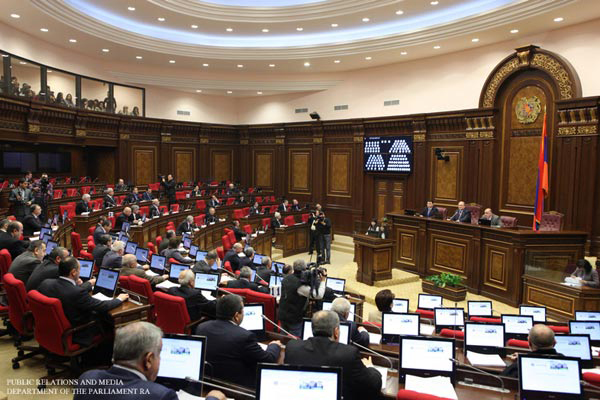In the 1920s, when the Bolsheviks were negotiating with the Kemalists over the borders of the South Caucasus, one of the main negotiators, Ordzhonikidze, wrote in one of his letters that the Armenians lacked strategic thinking. He referred to the Armenians’ possible position in the ongoing negotiations over the new borders.
Canadian hockey player Wayne Gretzky’s following words are perhaps the most cited quote in various theories about strategic thinking: “I skate to where the puck is going to be, not where it has been.”
If we follow Armenia’s current press and social networks, the opinion of the old Bolshevik still seems relevant today.
The main problem of the political life of 2017 is the thinking of Armenia’s political and public actors, which can not form a comprehensible agenda for the society. The political agenda must correspond to the reality and should be based on objective assessments; it has to put forward a “roadmap” to achieving real change.
What are the main problems of today’s public life and how do the proposals of political actors correspond to real problems?
The answer to the second question can be found in the findings of the statistical survey by the Caucasian Barometer, published in late 2017. According to the survey, the most unreliable institutions for the society are political parties – both opposition and ruling ones. The parties are completely distrusted by 37% of respondents, sort-of distrusted by 26%, fully trusted by 4%, and partially trusted by 7%.
Taking into account the fact that after the constitutional reforms, the country will be ruled by a parliamentary system of government (starting April 2018) and that presidential elections will no longer be held, one can conclude that there is a deep public distrust towards the sole candidates for power – political parties, which implies that there is a general lack of confidence in the state and uncertainty about the future of Armenia as a whole.
The main problems of 2017 were caused by the events of 2016 – the April war, the Daredevils of Sasun operation, as well as traditional migration, economic crisis and social problems. As for the main problems, they remain largely the same – elections legitimacy, merging of economy and power, public awareness of the illegality of large oligarchs’ wealth.
Logically, the main discourse of the political life should have been based on these problems; however, if we look at the pre-election programs of opposition and pro-government forces, their public rhetoric and parliamentary speeches, we will see that they completely lack these theses.
The main topics of the agenda of the parliamentary opposition:
renaming of streets;
a fruitless legislative proposal to exit the Eurasian Union;
a perfunctory nomination of candidates for state positions, which only further legitimizes the current system;
personalized fruitless fervent criticism.
The main agenda of the extra-parliamentary opposition is the fight against Russia and Putin’s regime, which not only does not disprove, but also confirms the fact of Armenia’s colonization. “Colonization,” first and foremost, is a psychological state. To fight not for changes in one’s own country, but to see the only possibility of these changes in the organization of a regime change in Russia; this puts the public in a state of psychological self-colonization. Any decision outside of your possibilities leads to a dead end.
Another example of the search for solutions outside the country is the excitement over the comprehensive agreement signed with the European Union. The romantic expectations that “the EU will force to fight against corruption” are manifestations of the infantile thinking of the society. The “It is possible to achieve changes only with the help of the West” slogan is a dead end for Armenia’s political life.
Infantilism is made up of primitive approaches to various spheres of life, as a result of which it becomes impossible to make rational decisions. Political infantilism is when political structures are incapable of performing the functions that the society expects of them.
2017 can be considered not only a year of change in the model of government, but also the end of the political system that had emerged after the post-Soviet period. Old slogans such as “change of power,” “shame-shame,” “we are the masters of our country” have already lost their magical effect. Henceforth, the struggle over power ceases to be carried out between “the street” and “ the palace,” and moves to the field of “intramural” intrigues, while the main target of the struggle is the country’s resources, monopolies and the redistribution of property.
“The street” is not represented in the parliament, not even for purely symbolic reasons. Moreover, “the street” lacks political organization; it has no agenda and recognizable leaders. In general, being “on the street” is no longer honorable, especially since the old slogans have been discredited, and there are no “left” views on the political field which would be acceptable for the street.
However, in case the struggle carried out in “the palace” escalates, the parties will try to turn to the society, which is not ready to influence the situation with its own agenda.
Stepan Danielyan
 Epress.am News from Armenia
Epress.am News from Armenia
